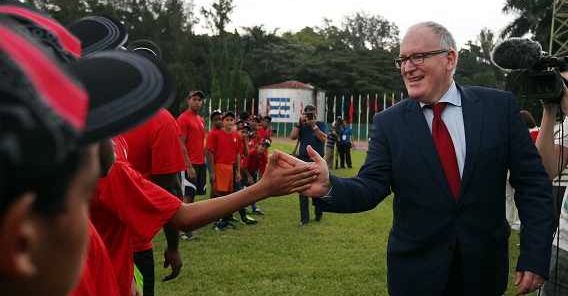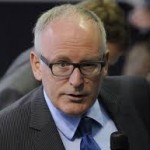
EU should review its stance toward Cuba, top Dutch diplomat says

The European Union needs to review and update its “common position” toward Cuba, said Dutch foreign minister Frans Timmermans, on an official visit to Cuba.
“Interesting events are happening in Cuba, and it’s time that the European Union update its relations with the island,” Timmermans said, quoted by the international press.
The Dutch diplomat, who arrived Sunday in Havana, said that his government is paying attention to the economic and social reforms being undertaken in Cuba, which, he said, are an opportunity for business and bilateral “human contacts.”
“We have to see if we can build a new relationship. It is important that we look not only at the political issues, but also reinforce the human contacts between Europe and Cuba,” he said, quoted by the Dutch newspaper NRC Handelsblad.
The Netherlands is interested in “strengthening its bilateral ties with the island on the basis of the possibilities for our business,” he said.
And, although those ties are “very few,” he hoped for a “lasting and good cooperation” as a result of his visit.
In May 2013, the Netherlands and Cuba signed a statement promoting bilateral cooperation in several areas, such as trade, investments, agriculture, biotechnology and culture.
Timmermans met Monday (Jan. 6) with Ricardo Cabrisas, vice president of the Council of Ministers. Later, he toured a youth soccer academy established by the Dutch and Cuban governments.

He is scheduled to meet Tuesday (Jan. 7) with his Cuban counterpart, Bruno Rodríguez Parrilla; the minister of Foreign Trade and Investment, Rodrigo Malmierca, and other officials.
The Dutch diplomat is also expected to sign a memorandum with Rodríguez for the establishment of political consultations between their respective foreign ministries. A tour of the Center for Genetic Engineering and Biotechnology is also on Timmermans’ schedule, as is a meeting with representatives of the Roman Catholic Church.
The policy of European Union countries toward Cuba is ruled by the so-called “Common Position,” proposed in 1996 by Spanish Prime Minister José María Aznar. It links EU trade and diplomatic relations with Cuba with what it calls Cuban “respect for human rights.”
The Castro government objects to that attitude and says that any negotiations with the EU are possible only “with the elimination of the meddlesome and unilateral ‘Common Position.'”
The problem is that the common stance can be eliminated only by unanimity, and some countries — such as the Czech Republic, the United Kingdom and Germany — refuse to reverse it if they see no “advances” in human-rights observance.
Relations between the EU and Cuba were suspended in 2003, after the arrest of 75 oppositionists on the island. They were resumed in October 2008, after a dialogue between the two parties.
Since then, the Cuban government has signed bilateral agreements with 15 or so European nations, but the EU, as a coalition, maintains its common stance.
The Netherlands is Cuba’s second-largest European trading partner, after Spain, with trade volume reaching 792 million dollars in 2012. About 30,000 Dutch tourists visited Cuba in 2013, according to the island’s National Statistics Bureau.

